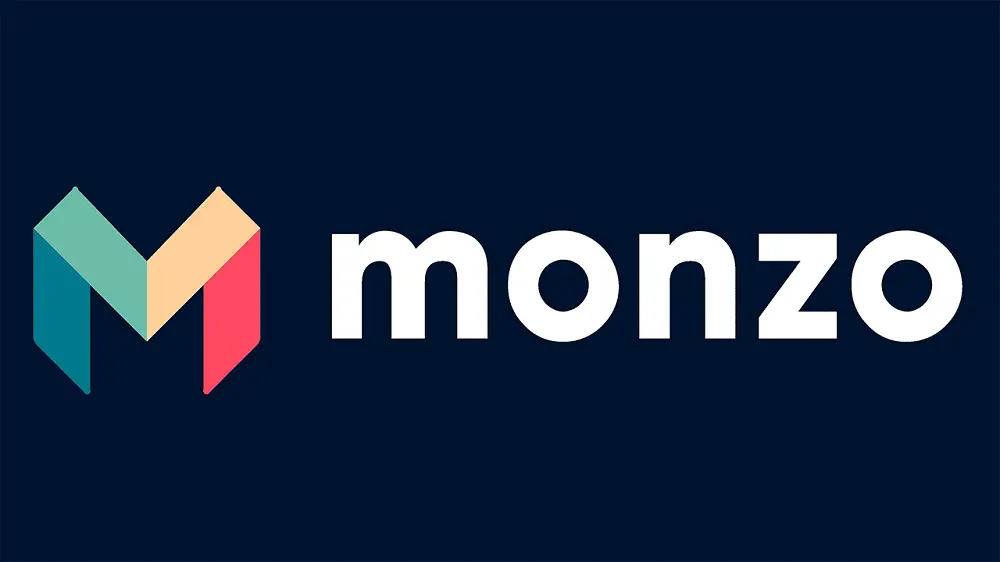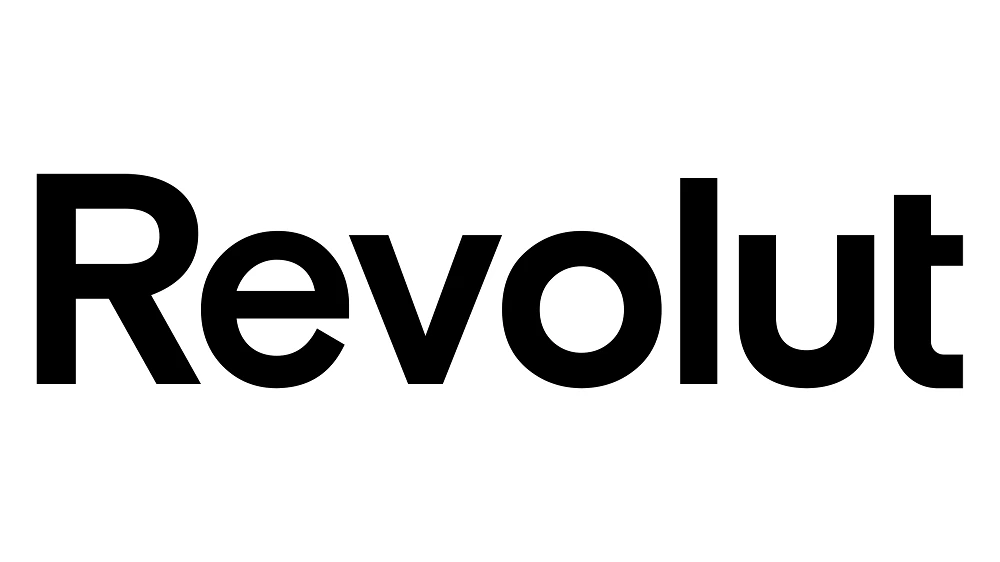Traditional business banking still moves at a snail’s pace with endless paperwork, hidden fees, and slow international transfers.
For startups and SMEs trying to manage cash flow in real time, that’s a deal-breaker. The shift toward instant onboarding, multi-currency accounts, smooth accounting integrations, and predictable fees is becoming clear across the market.
That’s why business neobanks, a digital-only bank designed for companies, freelancers, and SMEs, are becoming the go-to solution for modern businesses. With features like fast account setup, transparent pricing, smart expense controls, and automation built into every step, they give companies the speed and flexibility traditional banks can’t match.
In this guide, we’ll break down the top 11 neobanks for business in 2026, how to choose the right business neobank, and when building your own custom neobank could be the next strategic step for your company.
Best business neobank compared
We ranked the best neobanks by what matters most: clear pricing, quick setup, easy-to-use interface, features built for small businesses, and smooth connections to your accounting and payment tools.
| Neobank | Best for | Integrations/ multi-currency | Pricing (approx.) | Region/ availability |
|---|---|---|---|---|
| Starling Bank | SMEs & sole traders in the UK | Xero, QuickBooks integration | Free basic tier / paid add-ons £7–£21 per mo | UK |
| Monzo Business | Small businesses & freelancers | Xero, FreeAgent sync | Free (Lite) / £5 Pro plan | UK |
| Payoneer | Global freelancers & export SMEs | Supports > 150 currencies | Free account / FX fees apply | Global |
| Bunq | European startups & digital businesses | Multi-currency IBANs, API access | From €6.99 per mo | EU / EEA |
| NorthOne | US small businesses & contractors | Integrates QuickBooks, Wave | $10 per mo (flat) | US |
| Revolut | SMEs with global operations | Xero, Slack, API available | Free / from £19 per mo for Grow plan | Global (EU/US/Asia) |
| Mercury | Startups & tech companies in US | API, Stripe, QuickBooks | Free | US startups only |
| Relay | SMEs & accounting-driven teams | QuickBooks, Xero integration | Free basic / Relay Pro $30 per mo | US |
| Lili Bank | Freelancers & solo entrepreneurs | Accounting dashboard built-in | Free / Lili Pro $9 per mo | US |
| Wise Business | Global remote teams & exporters | > 70 currencies, accounting integration | Free setup / FX fees 0.4–0.6% | Global |
| Qonto | European SMEs & startups | Xero, QuickBooks, multi-user | From €9 per mo | France, Germany, Spain, Italy |
1. Starling Bank
Starling Bank is a UK neobank best known for its fee-free business accounts with no monthly charges or domestic payment costs. Its built-in Business Toolkit helps SMEs and freelancers manage invoices, expenses, and tax in one place.
A strong plus is the multi-currency support (GBP, EUR, USD) and full FSCS protection up to £85,000, ensuring both flexibility and security. The downside is that its international features are limited compared to players like Revolut or Payoneer, which makes it better suited for UK-focused businesses.
2. Monzo Business

Monzo Business is one of the most popular UK neobanks, trusted by over 600,000 businesses. Its standout strength is the seamless integratio with accounting tools like Xero and QuickBooks, helping SMEs and freelancers stay on top of expenses and taxes. Unlike some competitors, Monzo provides 24/7 i-app support and quick account setup with no hidden fees, which saves time for busy business owners.
A limitation to note is that Monzo is currently UK-only and offers fewer advanced features for larger enterprises compared to players like Revolut or Mercury. Still, for small to mid-sized businesses that want simplicity and reliability, Monzo remains a top choice.
3. Payoneer
Payoneer is a global neobank built for cross-border businesses, offering multi-currency accounts and seamless payment tools across 190+ countries. With support for 70 currencies and 17 languages, it’s widely trusted by millions of freelancers, e-commerce sellers, and SMEs that need to get paid or pay partners worldwide.
Its biggest advantage is the reach and convenience in international transactions, which suits global businesses well. However, compared to regional players like Starling or Monzo, Payoneer can feel more costly in fees for certain transactions, especially currency conversions.
4. Bunq
Known as “the Bank of The Free”, Bunq stands out for its focus on eco-friendly and flexible business banking. Companies using Bunq can benefit from perks like discounts on Google Workspace and enjoy up to 500 free transactions per year, helping reduce costs while streamlining operations.
It also offers instant payments, 24/7 support, and deposit protection up to €100,000 under the Dutch Deposit Guarantee Scheme (DGS). The trade-off is that Bunq’s services are mostly limited to the EU, which make it less suitable for businesses with a global footprint.
5. NorthOne
Built for small businesses and freelancers in North America, NorthOne focuses on simple, mobile-first banking. Users get fast account setup, a business debit card, and expense management directly from the app. This is perfect for startups who want to save time on admin tasks.
Its availability across the U.S. and Canada, along with positive reviews on TrustPilot, highlights its growing reputation. On the downside, NorthOne has fewer advanced features for international payments compared to global players like Payoneer or Revolut, so it best suits businesses operating primarily in North America.
6. Revolut

Revolut works for businesses of all sizes, from solo founders to global enterprises. It provides multi-currency accounts, payments to more than 150 destinations, and real-time foreign exchange in over 25 currencies. The bank is ideal for companies operating internationally.
More than 20,000 new businesses open accounts with Revolut every month, attracted by its ability to reduce costs and save up to 6% on international spending. However, for smaller startups, its wide range of services can sometimes feel more complex than necessary compared to simpler business banking alternatives.
7. Mercury
Tailored specifically for startups, Mercury combines banking essentials with growth-focused financial tools. Companies can access FDIC-insured accounts (up to $250,000 per depositor), cashback corporate cards, and access to treasury management that can generate higher yields than traditional banks.
Its biggest draw is simplicity – startups can open an account in about 10 minutes without dealing with branch visits or heavy paperwork. However, Mercury is best suited for venture-backed or growth-oriented companies, while smaller businesses may find its advanced tools more than they need.
8. Relay
Relay focuses on giving businesses full visibility and control over their cash flow by combining checking, savings, and payments in one platform. Teams can create multiple accounts, issue debit cards, and connect seamlessly with accounting software like QuickBooks or Xero.
It’s a US-based, FDIC-insured neobank offering no monthly fees and free domestic transfers – perfect for SMEs that value simple, zero-fee banking. However, it only supports USD accounts and lacks international transfer features, which may limit globally active companies.
9. Lili Bank
Lili Bank is built for freelancers and small businesses, offering a business debit card and smart financial tools that simplify daily money management. Its signature feature, Lili Smart, integrates accounting software directly into the platform, helping users handle bookkeeping without extra apps.
All accounts are backed by Sunrise Banks N.A. with deposits insured up to $250,000 through the FDIC, ensuring both safety and reliability. For entrepreneurs who need convenience and cost efficiency, Lili combines banking and accounting in one place.
10. Wise Business
Wise Business helps startups and SMEs manage global payments with transparency and control. You can hold and convert 40+ currencies, pay invoices in bulk, and get local account details in GBP, EUR, and USD to receive payments like a local. The platform also supports multi-user access and integrates with major accounting tools for smoother cashflow management.
However, since Wise isn’t a fully licensed bank, it doesn’t offer credit products or in-person banking, so it best suited for digital-first businesses and global teams that value low FX fees and real-time transfers.
11. Qonto
Qonto is a European neobank built for startups, SMEs, and freelancers. It offers local IBANs, multi-user access, and smart expense management tools that simplify accounting and team payments. With instant SEPA transfers, physical and virtual cards, and integrations with tools like Xero and Slack, Qonto delivers a complete digital banking experience.
However, it currently operates under a payment institution license, so lending and investment features are limited. Qonto works best for EU-registered businesses that value speed, simplicity, and seamless accounting integration.
How to choose the right business neobank
Now that you’ve seen the leading business neobanks, here’s a quick guide on what to look for when choosing the one that fits your business best. Focus on how your company moves money, manages expenses, and operates day to day. The goal is to find a platform that fits your business model, not the other way around.
1. Account type & multi-user controls
Look for features like multi-user access, role-based permissions, team cards, approval workflows, and spend limits. These tools help you control expenses and simplify financial operations as your business grows.
2. Fees & FX structure
Compare monthly fees, card fees, ATM limits, SWIFT/SEPA charges, and FX markups. Transparent, predictable pricing is essential for businesses operating internationally or managing high transaction volumes.
3. Payment & transfer capabilities
Check whether the neobank supports fast local transfers, global payments, batch payouts, ACH/wires, and automated recurring payments. Businesses handling cross-border transactions benefit from neobanks with strong FX optimization and multi-currency accounts.
4. Accounting & tool integrations
Seamless integrations with QuickBooks, Xero, Wave, FreshBooks, or your ERP system reduce admin and sync expenses automatically. The more automation you get, the fewer hours you lose to manual bookkeeping.
5. Cards & expense management
Evaluate virtual and physical corporate cards, real-time expense tracking, receipt capture, automatic categorization, and employee spending controls. These features replace outdated expense workflows and improve cash-flow visibility.
6. Cash flow & financial insights
Dashboards showing income, expenses, upcoming bills, and projected cash flow help founders make fast decisions. Some neobanks also offer invoice management, cash-flow forecasting, and working-capital tools.
7. Support & geographic coverage
Check the countries supported, business types accepted (LLC, sole proprietor, startup), customer support response times, and whether the platform works well for international or remote teams.
When should a business build their own custom neobank?
By now, it’s clear that neobanks are doing a great job helping businesses manage their finances – and for most companies, they tick all the right boxes.
But as your company scales, commercial neobank can start showing limits. In reality, some business contexts simply fall outside what commercial neobanks are built for.
Startups with unique business models may require custom money flows or compliance steps.Cross-border companies ofen face geography or regulation limits, especially around payments and onboarding. Businesses with high transaction volumes or multiple entities often need advanced treasury management, detailed user permissions, and multi-step approval flows, requirements that most off-the-shelf neobanks simply aren’t built to support
When these needs appear, a custom neobank becomes a smarter option. Instead of adjusting your operations to fit a platform, you can build financial workflows that match exactly how your business runs.
Here’s what a custom solution can offer:
- Seamless integrations: Connect your neobank directly with ERP, payroll, and accounting systems for unified financial management.
- Tailored compliance workflows: Build KYC, AML, and risk models that reflect your industry’s exact needs.
- Advanced access control: Manage multi-tier permissions across employees, merchants, and partners with full transparency.
- Scalable architecture: Add new features, currencies, or regions without depending on a third-party roadmap.
- Branded user experience: Deliver a fully white-labeled banking journey aligned with your brand and customer behavior.
How to go custom?
So, what does it actually take to turn the idea of a custom neobank into a working product?
There are 2 main ways to build it – and the right path depends on how much control, customization, and speed you need.
Here’s a quick overview of the two options for you:
| Feature | Hybrid approach | Custom Neobank |
|---|---|---|
| Cost | Lower upfront, recurring fees | Higher upfront, but better long-term value |
| Time to deploy | Fast (weeks) | Longer (months) |
| Customization | Limited | Fully customizable |
| Security | Relies on provider | Full control over security |
| Integration | Some business tool integrations possible | Seamless, deep integration with your tech stack |
Option 1: Build with a banking-as-a-Service (BaaS) provider
Banking-as-a-Service platforms give you the building blocks of a bank – like account creation, payments, cards, compliance, and KYC – all accessible through APIs. Instead of starting from scratch, you’re building your product on top of an existing banking infrastructure.
This is different from the 11 neobanks we mentioned earlier, where you sign up, use the features they provide, and can’t change much. With BaaS, you get a modular setup. You can design your own product with your own branding, workflows, and UI – while the platform handles backend complexity (like compliance, ledgers, and payments).
Why go with BaaS?
- Faster time-to-market compared to building from scratch
- Lower development costs
- Pre-built compliance and regulatory layers
- Flexibility to design your own front-end and user experience
Some popular BaaS providers include Solaris, Synapse, Treezor, and Unit – all of which offer solid foundations to build on.
So if you’re aiming for control, flexibility, and a fully branded experience – but don’t want the heavy lift of building everything from scratch – then going with a BaaS platform could be your smartest move.
Option 2: Partner with a fintech company to build from scratch
If you need something highly customized – like complex workflows, unique user journeys, or total control over data – then building from scratch with a fintech development partner can be the way to go.
In this case, you’re not just putting a new face on existing infrastructure — you’re designing and developing every part of the neobank to match your business’s needs.
Why build from scratch?
- Maximum flexibility and control
- Tailored features for unique markets or user groups
- Full ownership of data, roadmap, and user experience
- Can be scaled and evolved without third-party limitations
This approach takes more time and investment, but the result is a neobank that’s 100% yours. It’s built around your audience, your workflows, your brand, and your long-term goals.
If you’re still exploring the market before choosing a development partner, our article on the 10 best neobank app development companies of 2026 provides a clear comparison of who’s leading the field right now.
Once you’re ready to turn your vision into reality, Synodus can help you get there. Our team has deep fintech and compliance expertise to design custom neobanking platforms that integrate seamlessly with your existing systems, deliver strong security, and scale as your business grows.
Instead of adapting to a generic solution, you’ll get a platform tailored to your exact needs – one that strengthens your customer experience, speeds up operations, and future-proofs your financial infrastructure.
Final thoughts
In the end, a neobank only makes sense if it truly serves your business goals.
If an existing platform gives you the speed and features you need, don’t overcomplicate it. Move fast, test your ideas, and get your product to market.
But if you’re running into limits that slow down growth or flexibility, consider going custom. Building from scratch takes more work, yes, but it gives you control, ownership, and the ability to shape every user touchpoint to fit your vision.
Because the real power of a neobank isn’t just in launching one – it’s in creating a digital banking experience that grows with your business, not against it.
How useful was this post?
Click on a star to rate it!
Average rating / 5. Vote count:
No votes so far! Be the first to rate this post.




